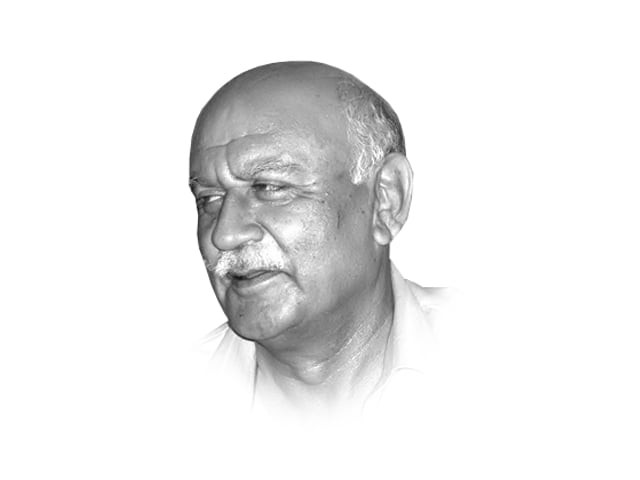The two distinctly different wars we face
Our situation is made even more challenging by the overt aggression of a neighbour

The writer is a retired brigadier and a former president of the Islamabad Policy Research Institute
While in conventional warfare, the enemy is easily recognisable due to distinct uniforms, neither guerrilla warriors nor terrorists always wear distinguishable uniforms and prefer to remain unidentifiable for as long as is possible. There have been insurgent guerrilla warriors, mostly in South America, who have usually, when coming close to success or in the final phase of their insurgency, worn uniforms; but never terrorists. However, due to the anonymity of the perpetrators, anti-guerrilla and anti-terrorist operations are very heavily dependent on intelligence. All wars and battles are dependent on accurate intelligence — thus the old cliche, “Intelligence is the better half of every war” and, I think the pun(s) were intended.
Since in these cases there are no defined borders, identifiable enemies, or any place which you know to be safe, or for that matter, unsafe, without accurate intelligence one is fighting in the dark. The initiative rests entirely with the enemy. His targets, if these are security forces or their bases, are known to him. He knows their logistic routes and their vulnerabilities while, without intelligence, the security forces know nothing. And if the guerrilla warrior, like his counterpart the terrorist, also chooses to terrorise, he can choose any number of targets to pick on. He can always find a public school to target somewhere.
This situation poses numerous enormous challenges for security forces. Foremost is the fact that they are forced to treat a misled portion of their own citizens as enemies — the very people they have sworn to defend. Security forces also face the challenge of defending themselves and their compatriots against attacks by unknown people. At the same time, it is physically impossible for them to defend all those who are vulnerable simultaneously and/or all the time. Consequently, security forces engaging guerrilla warriors and terrorists can take absolutely no offensive action without accurate intelligence. Even when taking defensive action, they cannot be aware of all the numerous targets that are still undefended and even in the case of the places they are defending, they cannot know if these are being adequately defended without good intelligence.
Add to this the fact that every single soldier is bred on aggression and belief in his ability to take on every kind of enemy and defeat him. Only if one realises this can one begin to comprehend the misfortune and frustration of the soldier today. Another outcome of the extraordinary dependence of counter-guerrilla and counter-terrorist operations on intelligence is that preemptive operations — wherein the enemies have been preempted before they could undertake an operation they had planned — cannot be made public as the success of future preemptive operations conducted on the basis of intelligence from the same source could be compromised.
On the other hand, failures of the security forces will invariably be public knowledge. That is why security forces and intelligence agencies, sometimes — despite phenomenal and numerous successes — can do no more than grind their teeth in frustration and listen quietly to tirades of criticism levelled at them for their visible failures.
Guerrilla warriors and terrorists frequently act as prongs of separate but linked offensives. If security forces accelerate anti-guerrilla operations, terrorists target undefended civilians and, if they accelerate counter-terrorist operations, guerrilla warriors press harder on other multiple fronts. When regular troops are engaged in a conventional war against multi-pronged threats, the classic manoeuvre invariably advocates fighting a ‘holding action’ against one (or more) prong, while eliminating the other. This enables security forces to ensure a sufficient concentration of strength at one (or more) point of application to eliminate it entirely, before dealing with the other(s) by turn.
But the guerrilla-terrorist combination permits no ‘holding operation’, such as one that could be fought in a conventional war. Thus forcing security forces to undertake simultaneous operations on both fronts and find means of synergising these too.
This further overstrains already overstrained resources and, far worse, also overstrains the abilities of commanders.
Our situation, an overly over-demanding one, is made even more challenging by the overt aggression of a neighbour, which times its aggressiveness so as to add another prong to the manoeuvres of the guerrilla-terrorists.
We need all the magic that a master strategist-cum-tactician has to offer for our survival and the very best intelligence to base our manoeuvres on.
Published in The Express Tribune, October 3rd, 2015.
Like Opinion & Editorial on Facebook, follow @ETOpEd on Twitter to receive all updates on all our daily pieces.















COMMENTS
Comments are moderated and generally will be posted if they are on-topic and not abusive.
For more information, please see our Comments FAQ